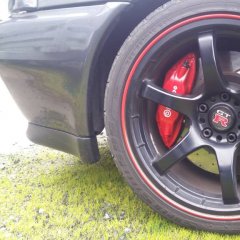What Psi Standard R33 Bov Good For
Announcements
-
Similar Content
-
Latest Posts
-
Well, you wouldn't use 2nd hand bearings out of another engine anyway....so just buying the proper bearings is obviously what you're going to do. The crankshaft would be common. The conrods might be common. There is essentially nothing else you would be able to use.
-
Legitimately thought it was a stagea as all i could see at first was the headlights.
-
By Robzilla32 · Posted
https://youtu.be/un8EW82GwKc?si=S9NBHsvl26QEJTF4 -
By A31Skyline · Posted
hi guyss! im new here so i want to ask all of you guys about the nissan RB20, i just swap my A31 Cefiro/Altima RB20e To RB20DET and got a problem with the engine bearings such as conrod etc. but i have a spare engine which is rb20e. is it possible to use parts from an rb20e block ? or is there any difference on internal of the engine beside the compression ratio? because if i cant use some of the parts from rb20e , want it or not i have to buy new specific only for rb20det . thanks guys i hope you guys can help me and tell me which parts is different:)
-






Recommended Posts
Create an account or sign in to comment
You need to be a member in order to leave a comment
Create an account
Sign up for a new account in our community. It's easy!
Register a new accountSign in
Already have an account? Sign in here.
Sign In Now